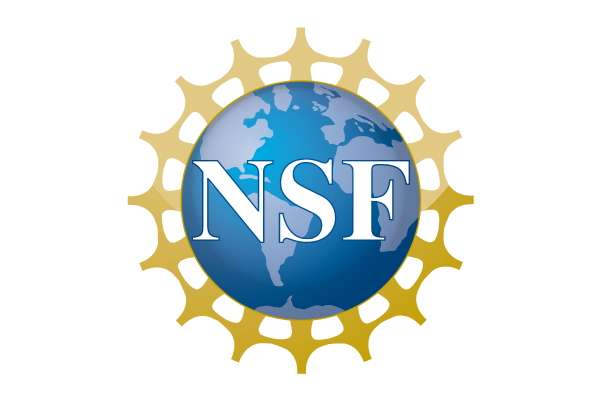Government Relations
Facets of Funding: National Science Foundation Graduate Research Fellowship Program

The National Science Foundation’s (NSF) Graduate Research Fellowship Program (GRFP) is a five-year fellowship that includes three years of financial support inclusive of an annual stipend of $37,000. The opportunity supports students in STEM disciplines who are pursuing research-based master’s and doctoral degrees at accredited U.S. institutions. APS provides a guide for psychological scientists interested in learning more and applying to this prestigious opportunity: When Is the Deadline for the NSF Graduate Research Fellowship Program? Your Complete Guide.
“The goals of the program are to select, recognize, and financially support individuals who have demonstrated the potential to be high achieving scientists and engineers, early in their careers,” said NSF’s Jong-on Hahm.
Hahm spoke as part of the APS series Facets of Funding: National Science Foundation Graduate Research Fellowship Program, a webinar recorded August 19, 2022.
Benefits
The fellowship program funds each accepted fellow with $147,000 over the five-year award, in the form of an annual stipend of $37,000 and $12,000 education allowance for each of three years. Funds go to the fellow’s graduate institution, which is responsible for their distribution, although the fellowship is attributed to individuals rather than the institution. The fellowships are also flexible, because the applicant can choose the project, advisor, and graduate program, and unrestricted in the sense that there are no service requirements after completion.
For 2023, NSF has been authorized to award 2,750 proposals (pending Congressional funding approval). In the past five years, NSF has received between 12,000 and 13,000 applications. Of those, about 16% get awarded.
Eligibility
Early-career full-time students—undergraduate students and first- and second-year graduate students—can apply. Applicants must be a citizen, national, or permanent resident of the United States to be eligible to apply, the institution that will house the program must be a U.S. institution, and the campus must be located in the United States. Applicants must also be pursuing a master’s or doctoral degree in STEM or STEM education.
Students in clinical psychology programs are eligible to submit to the GRFP as long as they are studying basic psychology, Hahm noted. “The proposed research cannot be the study of interventions, ‘does this treatment work better than others.’ It has to be basic psychology research,” she explained. Although an applicant’s program of study may be eligible, the research plan may not be. This means that if the research plan is clearly assessing a treatment, it will not be eligible for funding. If the proposal is assessing “does this work, and will it have a patient impact, then you’re assessing if one treatment works better than another. And that is not going to be eligible.” However, a proposal will not be dismissed just because it focuses clinical psychology. Hahm reiterated that reviewers, NSF program officers, and others all review proposed clinical research projects for eligibility.
Moreover, enrolled graduates (i.e., first- and second-year graduate students) can only apply once to the GRFP program, whereas undergraduate students can apply several times, Hahm said.
In addition, the fellowship supports student applicants to be primary investigators on the proposed research rather than the specific research projects. It is important for potential applicants to read the funding solicitation to get all the details on eligibility requirements for the GRFP before applying.
Application and timeline details
Required materials with applications include a research statement along with a personal and relevant background statement that allows applicants to tell their story and demonstrate their potential in STEM research. Hahm encouraged applicants to explain experiences that contribute to their motivation and preparation for pursuing a career in STEM. The research statement provides applicants the opportunity to describe their proposed research plan, communicate their idea, and explain their methodology, what is expected to be learned, and next steps. Importantly, applicants should communicate their research clearly for non-specialists, as not all reviewers may come from the applicant’s field of study.
Hahm also noted this important point: Both the personal statement and the research statement must have separate headings that address how the application is relevant to NSF’s Merit Review Criteria. Under separate headings, applicants should address (1) intellectual merit, or “how important the proposed activity is to advancing knowledge within its own field and across different fields,” and (2) broader impacts, or “how well the proposed activity benefits society or advances societal outcomes.” This is a format requirement for NSF, and not following it could result in applications being returned. See the funding solicitation for more information. for more information.
The 2022 deadline for the GRFP for psychology students is October 18 at 5 p.m. local time. Fellowship offers will be made in March and April of the following year. Awardees will accept their awards in May and begin the fellowship year in September.
Submit applications early to ensure that all documentation is correct and received before the deadline!
APS Members and registered attendees can view the webinar recording here.
NSF Resources:
- GRFP solicitation: https://www.nsf.gov/pubs/2022/nsf22614/nsf22614.pdf
- Eligibility questionnaire: https://nsfgrfp.org/applicants/fellowship-eligibility/
- Upcoming events: https://nsfgrfp.org/events/ Hosted by NSF: “NSF GRFP Info for Applicants Webinar” and “Reading the Fine Points of the NSF GRFP Solicitation Webinar”
Feedback on this article? Email [email protected] or login to comment.





APS regularly opens certain online articles for discussion on our website. Effective February 2021, you must be a logged-in APS member to post comments. By posting a comment, you agree to our Community Guidelines and the display of your profile information, including your name and affiliation. Any opinions, findings, conclusions, or recommendations present in article comments are those of the writers and do not necessarily reflect the views of APS or the article’s author. For more information, please see our Community Guidelines.
Please login with your APS account to comment.